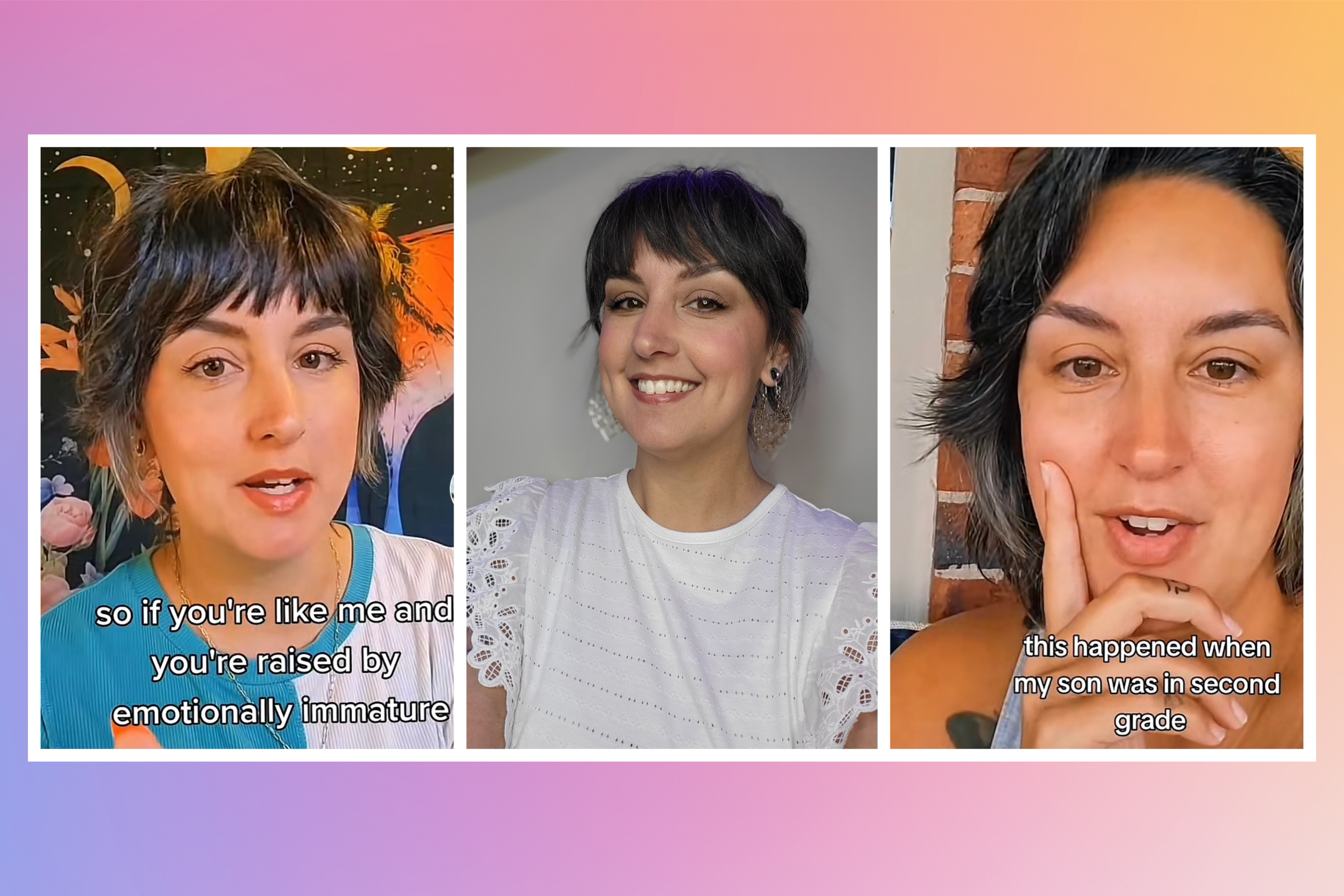A Conversation with Megan Prather: Why Vulnerability on TikTok is Worthwhile
/This is the 16th post in the “A Conversation With” series, where I interview smart humans about their experiences in marketing and social media. You can read past features here.
This month, I interviewed Megan Prather, a certified coach who shares vulnerably about difficult parent relationships on her TikTok, where she has a following of 21,000. In this blog post, we dive into her approach to TikTok, why it’s worth getting vulnerable online, and how to balance content creation with caring for your mental health.
What inspired you to start creating content for TikTok?
It started as a challenge to put myself out there in the world. I come from an enmeshed family that’s very private and secretive. I was challenging myself to see if I could be somebody outside of my family. I got started in October 2022. In my first video to take off, I talked about an anniversary party where my mom really hurt my feelings. It went viral and my account has been growing ever since!
What surprised you most since joining TikTok?
When I first joined the platform, I was consuming a lot of content from people who deal with emotional trauma and abusive relationships. I've been surprised how many people have strained relationships with their parents. I’ve met a lot of people through TikTok and have formed real friendships. I appreciate that TikTok is realistic–you can be your whole, messy self and it still resonates with people.
How do you decide on video topics and posting frequency/times?
Often, comments will bring up topics that I want to talk about. I only post if I’m feeling inspired. I usually post in the morning after journaling and meditating, since those activities often bring up things I want to discuss.
How do you find time to make TikToks?
Summer is hectic, so I’m more active on TikTok in the winter when it’s cold and I’m staying in. If I’m more inspired, I post a lot; other times, I go through a drought. I’ve worried about losing momentum, but my concerns have faded. I’m posting for myself more than anything else, and if people get something out of it, that’s great. I try to do what feels right for me and not worry about the rest.
What types of videos get the most traction?
Videos about narcissistic mothers always get a lot of traction. People have realizations about their own families and feel validated. Personally, I needed to hear many people’s stories before I sought therapy. People are craving that sort of content right now. They want to live their lives in a more fulfilling way and parents are holding us back with unspoken rules.
Was it scary at first to show vulnerability in your videos? How did you move past that fear to start sharing your story?
I was already in therapy and working on setting boundaries and speaking my mind in real life. TikTok was a chance to be truthful about how I feel. It’s challenging for me since my family is not direct in their communication style. TikTok has helped me practice and process. Within my own family, I’ve always felt like a liar or like I must be wrong since no one else sees things the way I do. TikTok showed me that I’m not wrong or a liar, and I’m not alone.
This all coincided with me going to school to be a life coach. The program challenged me to see who I wanted to help with my coaching and how. To be a good coach, you have to show up authentically, and sharing my story on TikTok helped me lean into that and shaped the direction of my coaching business.
Do you ever get tired of sharing content about difficult parental relationships?
It’s difficult and traumatic, so I do want to start sharing other aspects of my life more. My mental health affects how often I’m going to post. I started by posting every day for a month, and now I’m lucky if I post once every two weeks.
How has TikTok helped you grow your coaching business?
I get a lot of subscribers on my website. Overall, it’s helped to get my name out there, but I still get more connections in one-on-one interactions in person.
Do you ever explicitly market your coaching services in your videos, or do you solely share personal stories and educational content?
I only explicitly market my services when I have courses or events coming up. When I have events scheduled, those videos don’t do as well, but I pin them at the top of my page so they’re easy to find.
You often share reply videos to comments from your audience–what role does that play in your TikTok strategy?
I have so much to process and talk about, I get bogged down. Comments spark ideas for videos. I can share a snarky response video, or an empathetic and educational one, depending on the comment.
What’s your biggest pet peeve on TikTok?
When people try to tell you that you’re wrong for how you feel.
Do you have a favorite TikTok you’ve made, one that you’re most proud of?
A specific video doesn’t come to mind. I’m proud of the videos that help people feel inspired and know that healing is possible.
What advice would you give to business owners who are just getting started on TikTok?
Don’t focus on doing it right. Just do it. Put something out there. I didn’t know how to edit videos or what hashtags to use when I first started. The more I did it, the more confident I became.
Any advice for people who want to be more vulnerable on TikTok?
Make sure your mental health is in a good place. You don’t know what negative comments might come your way. The comments section has sent me down a trigger for days.
Even so: do it. It pushes you out of your comfort zone. I’ve heard so many inspiring stories. Just try it at least once and don’t worry about being perfect.
Where can people find you/your work?
I’m on TikTok and my website has all my workshops, courses, and information about one-on-one coaching.
For more on social media marketing and TikTok strategy, check out my unboring email newsletter.



